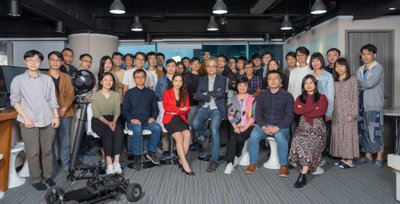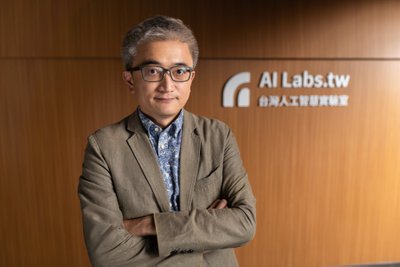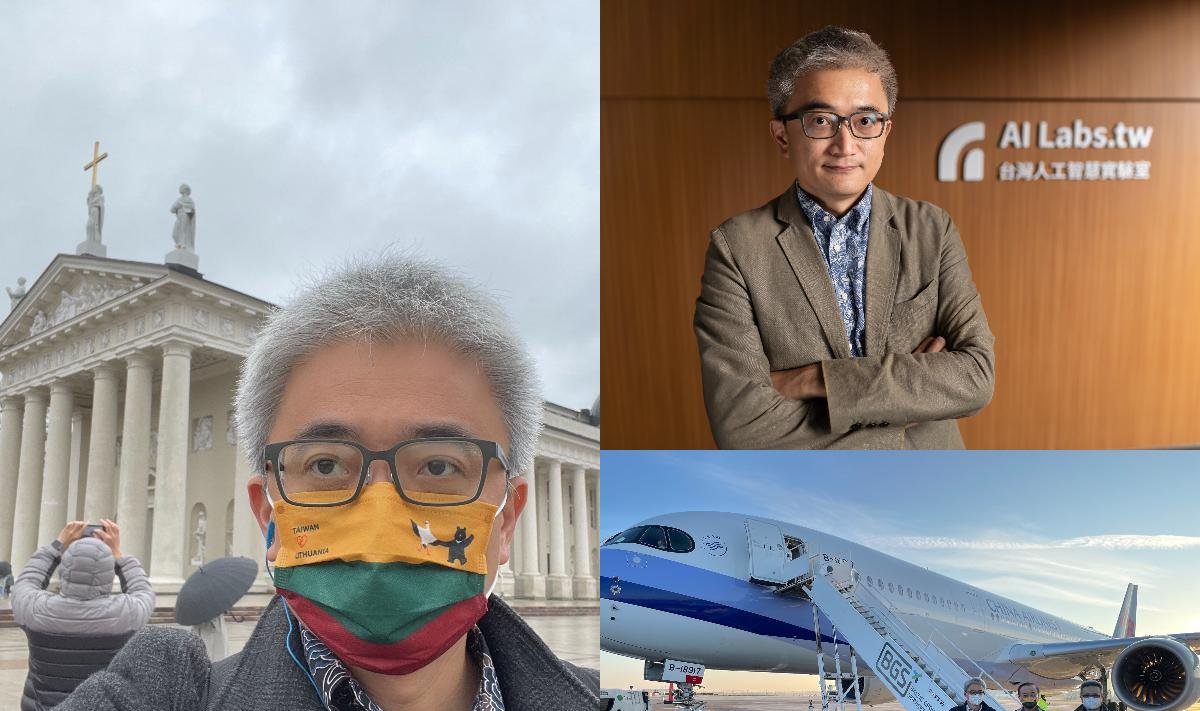Artificial intelligence is being actively deployed and used around the world in a wide range of industries, from self-driving cars, virtual assistants, video and speech recognition, robotics, traffic congestion control and financial fraud detection.
In Taiwan, the pace of technology development is even faster – thanks to strong efforts by the government and business, the country is considered to be a leader in artificial intelligence. This is why companies such as MediaTek, Quanta Computer Inc. and TSMC are at the forefront of developing advanced semiconductor technologies, while others such as Taiwan AI Labs are developing smart solutions for urban infrastructure, healthcare and art.
"I am confident that artificial intelligence will soon become a powerful global force. The ability to scan 45 trillion different documents at the same time, as ChatGPT algorithms now do, is just the beginning. Artificial intelligence will react and make decisions in the same way as a human," says Ethan Tu.
Smart hospital wards and health at a lower cost
Taiwan's healthcare system has a very long history with well-developed data centres, and the system itself is considered a priority in the country. It aims to create a more sustainable, inclusive and equitable future, where technology and scientific advances are used to improve people's quality of life and to build a healthier society.
The country's health facilities, in partnership with personal health insurance companies, cover 99.7% of the healthcare records of the country's population. As one of the benefits of AI is the ability to review and analyse vast amounts of data, it helps to conduct highly accurate research and develop advanced therapies, says Ethan Tu.

In recent years, Taiwan has invested even more in artificial intelligence in the medical field, and today is at the forefront of the development of medical technologies based on it, such as intelligent imaging systems, intelligent surgical systems and advanced diagnostic tools.
"This is directly linked to the country's strong medical image, which encompasses the quality of care, the availability of medical technology, the level of expertise and training of healthcare professionals, and the overall standard of medical facilities and services, both locally and internationally," says Ethan Tu about the goal of making AI-based medicine more accessible worldwide.
How Taiwan became a leader in artificial intelligence
The smaller the country, the better opportunities it has for technological progress, believes the founder of Taiwan AI Labs. In Taiwan, he says, transparency and an open source culture are seen as the most important values, which is one of the most striking differences from the world's biggest countries.
"Big countries like the US have Google and Microsoft. They are home to huge data centres, but the potential for the AI industry depends on several factors. Not only does it require economic resources, but also a well-developed infrastructure, talent and, above all, a flexible approach from the government. And that is where smaller countries have some advantages, as they can invest in a more targeted way", says Ethan Tu.
Taiwan's strong technology base, support from the government, thriving start-up system and talent have made the country a leading player in the AI industry. The Taiwanese government is actively promoting the growth of the AI industry by expanding infrastructure, adopting targeted action plans and establishing research centres. The latter, according to Ethan Tu, are particularly effective in increasing collaboration between academia and business.
In Taiwan, he points out, the concept of human-centred artificial intelligence is very important. This means putting human values, ethics and well-being at the centre of the development and deployment of technology.
"Our goal is to develop artificial intelligence that is safe, transparent and has a positive impact on people and society as a whole. When developing AI algorithms, we stress the human right to privacy. The aim is for institutions not to have to collect people's data from all devices, but to have a separate database for each institution," says Ethan Tu.
The human right to be forgotten and remain unknown
The European Union's (EU) regulatory and ethical policies on artificial intelligence (AI) are widely seen as limiting its development. The EU's General Data Protection Regulation (GDPR) and the AI law set strict guidelines for the collection, storage and use of data, which can be difficult for companies to follow.
On the other hand, from Taiwan's point of view, the EU legislation is quite promising. They are, according to Ethan Tu, a good definition of people's right to be forgotten and the right to remain unknown. Such a respectful environment is particularly beneficial for smaller countries such as EU members and Taiwan.
"In Taiwan, we are promoting a data-linking approach rather than a big data centre. It is because of the GDPR that the Taiwan AI Federated Learning Alliance was established in the country. It allows data to be collected from device to device, institution to institution, without anyone touching a person's personal and sensitive information," says Ethan Tu.

Technology strengthens the state as well
Technology also helps to strengthen the state itself, according to the founder of Taiwan AI Labs. First of all, it reduces labour costs in the healthcare system. It helps nurses and doctors to diagnose diseases very accurately and at the lowest possible cost in terms of time and money. Working together with hospitals and health insurance companies, and based on the data they provide, the government can calculate how to improve people's quality of life with less investment.
Artificial intelligence has also been useful during the COVID-19 pandemic. Given Taiwan's geographical proximity to mainland China, where the coronavirus originated, the number of cases in Taiwan has remained extremely low throughout the pandemic. And despite not being a member of the World Health Organisation (WHO), Taiwan has become a role model for the world in pandemic prevention through the effective use of modern technology.
"We have implemented an automated advanced news verification method that eliminates a lot of misinformation before it spreads across the country. This has been particularly useful during the pandemic, and it also works well in the geopolitical situation. Just like Lithuania and Ukraine, Taiwan is also on the frontline of an information war. Therefore, people need to be trained to recognise misleading or false information," notes Ethan Tu.

Is AI to be feared?
Some people are concerned about the possible negative effects of artificial intelligence. First of all, there is the potential for misuse of technology, with more and more false and misleading information created with the help of algorithms reaching the public domain. For this reason, according to the founder of Taiwan AI Labs, people need to stay aware and evaluate all information critically. The most important thing, he says, is to check the source of the information.
"If you get a call from a manager telling you to make an immediate transfer or take any other urgent action, stop, step back from what you are doing and don't blindly follow instructions, because it can be a cleverly constructed recording that speaks for the manager. Call your manager first and make sure it was him or her," warns Ethan Tu.

There are also fears that robots will displace manual labour, and that algorithms will become so sophisticated that those who earn their living from creativity will also lose their jobs – AI is already writing film scripts (Sunspring, Zone Out) and is able to write song lyrics, to play the violin and piano.
The founder of Taiwan AI Labs has an answer to this fear, too. Although AI algorithms can indeed create content already, according to Ethan Tu, they still need human input and supervision. First and foremost, to ensure responsible and ethical behaviour – both human and machine.
